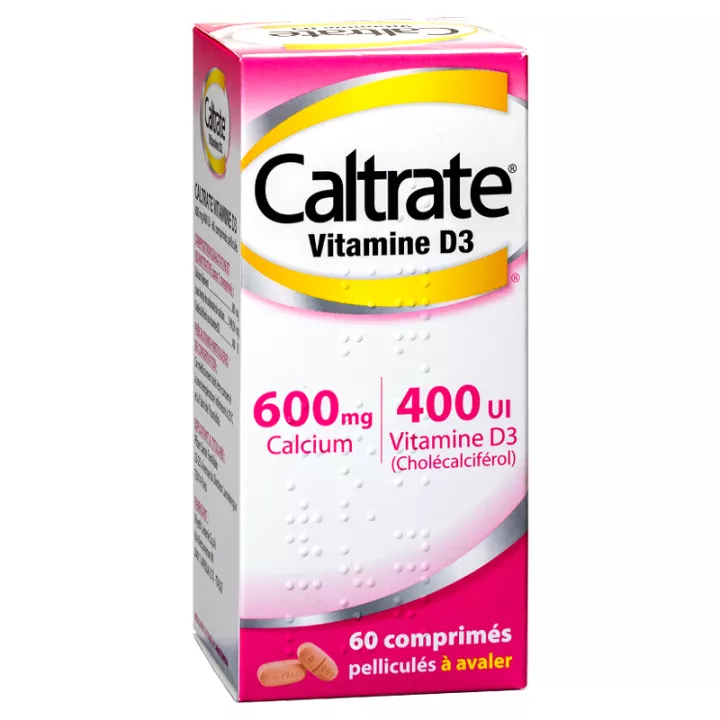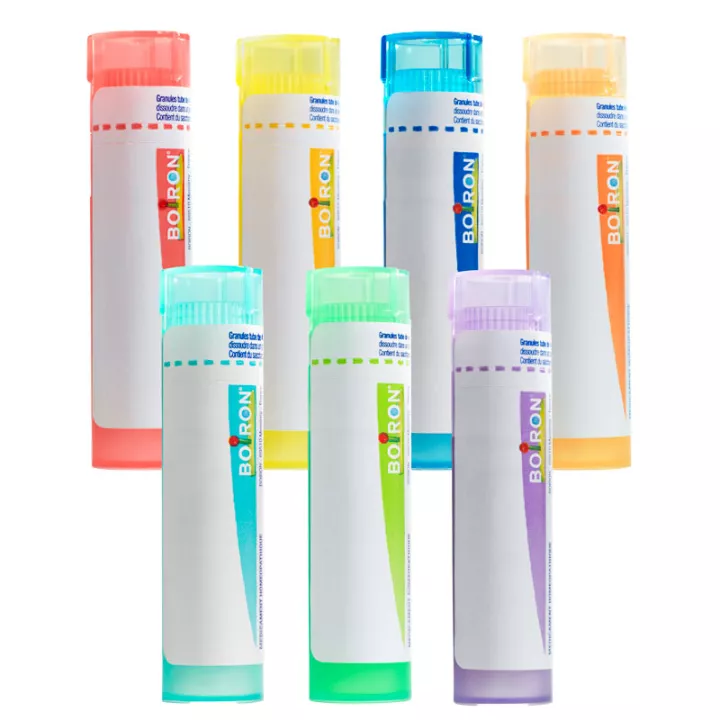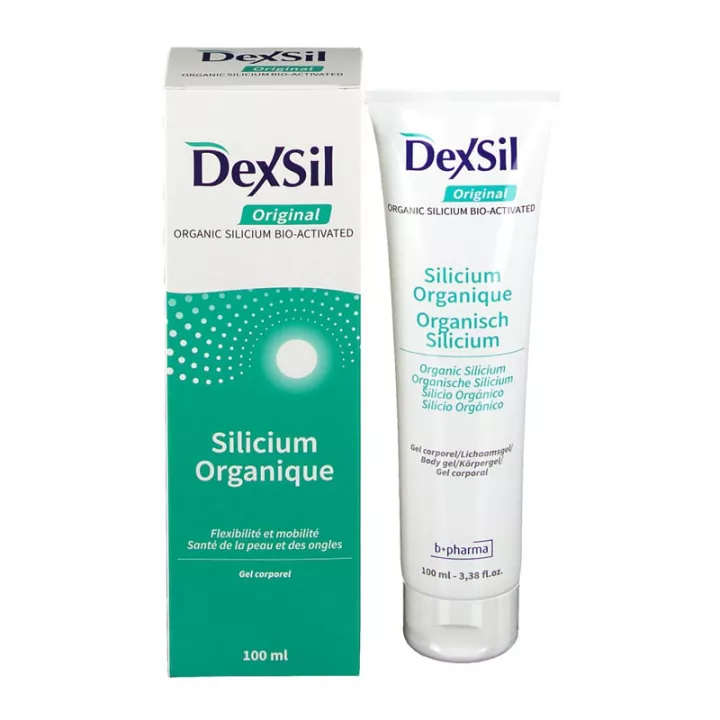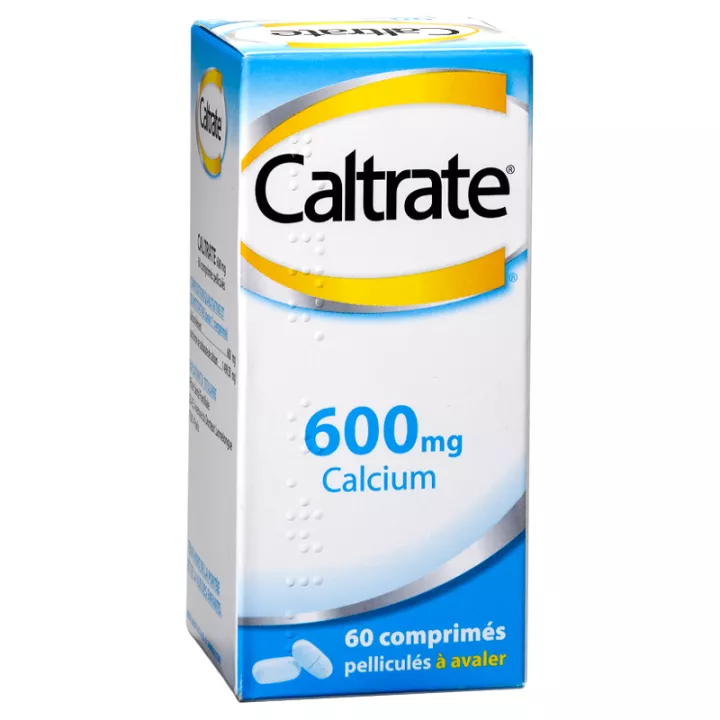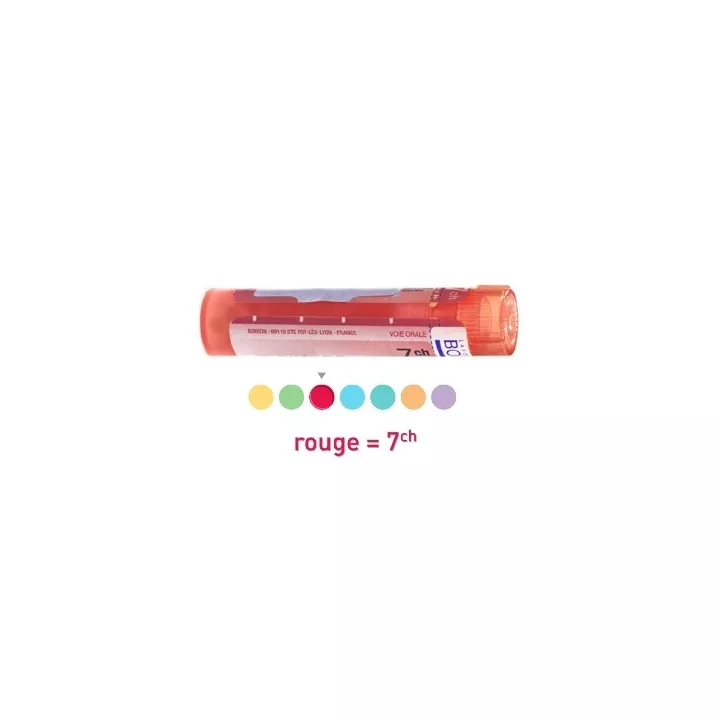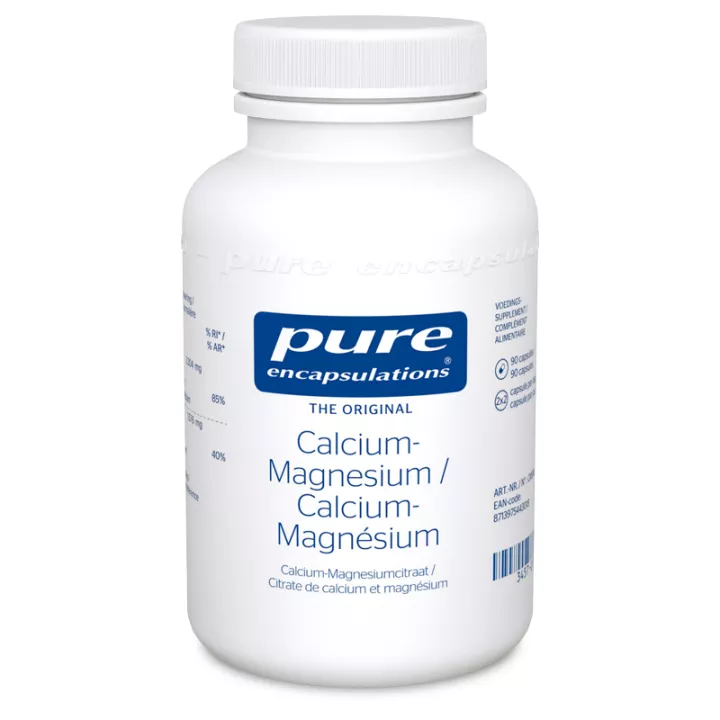NOTICE
ANSM - Last updated: 29/04/2016
Name of the medicinal product
CALTRATE VITAMIN D3 600 mg / 400 IU, film-coated tablet
Calcium and cholecalciferol
framed
Read this leaflet carefully before you start taking this medicine. It contains important information for your treatment.
If you have any further questions, ask your doctor or pharmacist.
· Keep this leaflet, you may need to read it again.
· If you need more information and advice, ask your pharmacist.
· If symptoms worsen or persist afterwards, consult a physician.
· If you notice any side effects not listed in this leaflet, or if you experience any of the effects listed as serious, please tell your doctor or pharmacist.
Review summary
In this notice :
1. WHAT IS CALTRATE VITAMIN D3 600 mg / 400 IU film-coated tablet AND WHAT IT IS USED FOR?
2. BEFORE YOU TAKE CALTRATE VITAMIN D3 600 mg / 400 IU, film-coated tablet?
3. HOW TO TAKE CALTRATE VITAMIN D3 600 mg / 400 IU film-coated tablet?
4. WHAT ARE POSSIBLE SIDE EFFECTS?
5. HOW TO STORE CALTRATE VITAMIN D3 600 mg / 400 IU film-coated tablet?
6. ADDITIONAL INFORMATION
1. WHAT IS CALTRATE VITAMIN D3 600 mg / 400 IU film-coated tablet AND WHAT IT IS USED FOR?
Pharmacotherapeutic group
CALCIUM IN ASSOCIATION WITH OTHER SUBSTANCES
Therapeutic indications
This medicine contains calcium and vitamin D3, which facilitates the absorption of calcium by the intestine and its fixation on the bones.
He is used:
· in the treatment of calcium deficiencies and vitamin D in the elderly,
· in combination with the treatment of osteoporosis when the intake of calcium and vitamin D is insufficient.
2. BEFORE YOU TAKE CALTRATE VITAMIN D3 600 mg / 400 IU, film-coated tablet?
List of information needed before taking the medication
Not applicable.
Cons-indications
Do not take CALTRATE VITAMINE D3 600 mg / 400 IU film-coated tablets in the following cases:
· If you are allergic to vitamin D or any of the other ingredients of Caltrate Vitamin D3.
· if you have an abnormally high amount of calcium in the blood (hypercalcaemia) and / or an exaggerated elimination of calcium in the urine (hypercalciuria)
· if you have kidney stones (calcium lithiasis)
· if you have an excessive intake of vitamin D (hypervitaminosis D)
Precautions for use; special warnings
Take special care with CALTRATE VITAMINE D3 600 mg / 400 IU film-coated tablet:
· In case of prolonged treatment with Caltrate Vitamin D3, it is necessary to have regularly check the amount of calcium present in the blood (calcemia). This control is particularly important in the elderly and during associated treatment based on cardiotonic glycosides or diuretics.
Depending on the outcome, your doctor may have to reduce or even interrupt your treatment.
· If you frequently have kidney stones.
· If your doctor has informed you that you are suffering from kidney failure.
· If your doctor has informed you that you have a sarcoidosis
· If you are immobilized and have a decrease in bone mass (osteoporosis)
· If you are taking other medicines containing vitamin D3 or calcium
Interaction with other medicines
Taking other medicines:
If you are taking or have recently taken any other medicines, including medicines obtained without a prescription, talk to your doctor or pharmacist.
In particular, you should tell your doctor if you are taking or have recently taken any of the following medicines:
· thiazide diuretics,
· corticosteroids by the general route,
· a treatment based on ion exchange resins such as cholestyramine or laxatives such as paraffin oil,
· an antibiotic treatment of the tetracycline family in case of simultaneous administration. It is recommended to shift the intake of tetracyclines at least 2 hours before or 4 to 6 hours after oral calcium intake,
· a treatment based on digitalis in case of simultaneous administration. You will then need to be monitored regularly (ECG and calcemia control),
· a treatment based on biphosphonate or sodium fluoride. It is recommended to shift Caltrate Vitamin D3 by at least 3 hours, as their digestive absorption can be reduced.
Interactions with food and beverages
Food and drinks
Within two hours of taking Caltrate Vitamin D3, you should avoid ingesting foods containing oxalic acid (present in spinach and rhubarb) or phytic acid (found in whole grains) that can inhibit the absorption of calcium.
Interactions with Herbal Medicines or Alternative Therapies
Not applicable.
Use during pregnancy and lactation
Pregnancy - Breastfeeding
In pregnancy, the daily dose should not exceed 1500 mg of calcium and 600 IU of vitamin D, one tablet per day.
Ask your doctor or pharmacist for advice before taking any medicine.
Sport
Not applicable.
Effects on ability to drive or use machines
Driving and using machines:
The effect of Caltrate Vitamin D3 on the ability to drive or use machines has not been studied. However, no effect is known or expected.
List of excipients with known effect
Not applicable.
3. HOW TO TAKE CALTRATE VITAMIN D3 600 mg / 400 IU film-coated tablet?
Instructions for proper use
Not applicable.
Dosage, Mode and / or route (s) of administration, Frequency of administration and Duration of treatment
Always take the dose recommended by your doctor. In case of uncertainty consult your doctor or pharmacist.
Caltrate Vitamin D3 comes in the form of film-coated tablets to be taken orally.
The usual dose is 2 tablets per day, to be swallowed with a large glass of water.
Symptoms and Instructions for Overdose
If you take more CALTRATE VITAMIN D3 600 mg / 400 IU, film-coated tablet than you should:
When taking an overdose of Caltrate Vitamin D3, the following symptoms may occur: anorexia, excessive thirst, nausea, vomiting, constipation, abdominal pain, muscle weakness, tiredness, mental disorders, increased urine volume, bone pain , kidney stones.
In case of prolonged overdose, calcifications may occur in vessels or tissues.
In cases of significant overdose cardiac arrest may occur.
If any of these effects occur, stop taking Caltrate Vitamin D3 and immediately notify your doctor who will take the necessary action.
Instructions for omission of one or more doses
If you forget to take CALTRATE VITAMIN D3 600 mg / 400 IU, film-coated tablet:
Do not take a double dose to make up for a missed dose.
Risk of withdrawal syndrome
Not applicable.
4. WHAT ARE POSSIBLE SIDE EFFECTS?
Description of adverse reactions
Like all medicines, CALTRATE VITAMIN D3 600 mg / 400 IU, film-coated tablets may have side effects, although not everyone is exposed to them.
Uncommon side effects (affects 1 to 10 users in 1000): Excessive calcium in blood or urine.
Rare side effects (affects 1 to 10 users in 10,000): constipation, bloating, nausea, abdominal pain, diarrhea, itching, rash and urticaria.
Other side effects (unknown): kidney stones.
If any of the side effects gets serious, or if you notice any side effects not listed in this leaflet, please tell your doctor or pharmacist.
5. HOW TO STORE CALTRATE VITAMIN D3 600 mg / 400 IU film-coated tablet?
Keep out of the reach and sight of children.
Expiration date
Do not use Caltrate Vitamin D3 after the expiry date which is stated on the carton and vial.
The expiry date refers to the last day of the month.
Storage conditions
This medication should be stored at a temperature not exceeding 25 ° C.
Keep the bottle tightly closed, away from moisture.
If necessary, warnings against visible signs of deterioration
Medicines should not be disposed of via wastewater or household waste. Ask your pharmacist what to do with unused medications. These measures will help protect the environment.
6. ADDITIONAL INFORMATION
Full list of active substances and excipients
What does CALTRATE VITAMIN D3 600 mg / 400 IU contain, film-coated tablets?
The active substance is:
Calcium carbonate ............................................... .................................................. 1498.50 mg
Quantity corresponding to calcium element ............................................. ........................................ 600.00 mg
Cholecalciferol or Vitamin D3 .............................................. .................................................. ........ 400.00 IU
For a scored film-coated tablet.
The other components are:
Microcrystalline cellulose, povidone, crospovidone, sodium laurilsulfate, croscarmellose sodium, magnesium stearate, OPADRY OY-S-27203, light liquid paraffin, talc.
Pharmaceutical form and content
What is CALTRATE VITAMINE D3 600 mg / 400 IU film-coated tablet and contents of the pack?
This medication is in the form of a scored film-coated tablet.
Bottle of 30, 60, 90 and 180.
Name and address of the marketing authorization holder and the holder of the manufacturing authorization responsible for the release of the lots, if different
Holder
PFIZER FAMILY HEALTH
23-25, avenue du Docteur Lannelongue
75014 PARIS
exploiting
PFIZER FAMILY HEALTH
23-25 rue du Docteur Lannelongue
75014 PARIS
Maker
WYETH MEDICA IRELAND
NEWBRIDGE
CO. KILDANE
IRELAND
or
PFIZER CONSUMER MANUFACTURING ITALY SRL
VIA NETTUNENSE 90
04011 APRILIA (LT)
ITALY
Names of the medicinal product in the Member States of the European Economic Area
Not applicable.
Date of approval of the notice
The last date on which this leaflet was approved is {date}.
AMM under exceptional circumstances
Not applicable.
Internet Information
Detailed information on this medicine is available on the Afssaps website (France).
Information for health professionals only
Not applicable.
Other
Not applicable.

